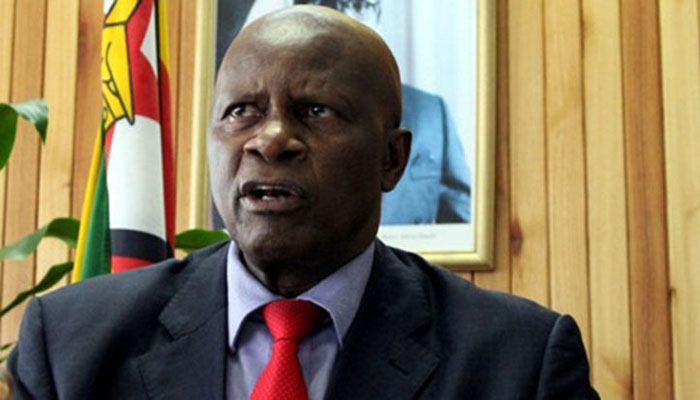
The Sunday Mail

Golden Sibanda
Zimbabwe should not heed any dictation by foreign institutions on how best to address outstanding issues to the land question, but should deal with the matter in terms of its Constitution, an outgoing Cabinet Minister has advised.
Former Finance and Economic Planning Minister Patrick Chinamasa has said that Government should fairly compensate for all acquired resettlement land in terms of Zimbabwe’s Constitutional provisions.
He also said while Zimbabwe was already instituting economic reforms, as demanded by the US through its latest sanctions, reforms should be a process rather than an event aimed at solely benefiting Zimbabweans.
The US has demanded, as part of conditions to lift sanctions, economic reforms to promote growth, address unemployment and underdevelopment, restore livelihoods and make progress on monetary reforms.
He said Zimbabwe should engage the US Government to highlight issues that needs to be ironed out.
This include conditions set by ZIDERA such as that the US would consider lifting the two decades long economic embargo, among other conditions, if Zimbabwe and Sadc enforces the Sadc Tribunal rulings on land.
These include disputes involving employment, commercial and human rights cases surrounding disposed Zimbabwean white former commercial farmers and agricultural companies that operated in the country.
On the land question, the outgoing minister said evaluation of farms compulsorily acquired for redistribution to the landless majority is underway and should be followed by quantification and mobilization of compensation funding.
He said the land compensation for both BIPPA and non-BIPPA acquired farms should be paid over a period of time.
Mr Chinamasa said besides compensating white former commercial farmers whose land Government acquired for resettlement, Government should also give title to beneficiaries of the land reform.
However, he said Government should deal with all the issues regarding the land reform programme in terms of the country’s laws, as provided for in Zimbabwe’s Constitution and not any other external authority.
The land reform was designed to redress skewed land ownership, which had seen just 4 000 white farmers owning most of the productive land in the country while the black majority toiled on barren unproductive land.
“As far as the Zimbabwe Government is concerned, we should abide by our Constitutional provisions in dealing with the land question in terms of payment of compensation. Zimbabwe should not recognize any other institution outside its judiciary with respect to any dispute that may arise over the issue of land acquisition or compensation.
“To the extent possible, Zimbabwe must engage the United States authority and convey the correct legal position to them,” Mr Chinamasa said.
He stressed that as provided for in the Constitution, Government should pay for land and improvements on the farms protected under Bilateral Investment Promotion and Protection Agreements (BIPPAs).
In terms of land compulsorily acquired by Government for resettlement, but not covered by BIPPAs, Government should only pay for improvements given the Constitutional position that all land belongs to the State.
“Zimbabwe must address the issue according to Constitutional provisions which require us to pay compensation. In appropriate cases, land protected under BIPPA, we have a Constitutional obligation to pay for both land improvements, but any land outside BIPPA, we only pay compensation for improvements,” he said.
The outgoing minister also said most of the conditions raised by the US regarding pre-election conditions had been satisfied, among them the conduct of ZEC in administering the polls, its independence in electoral processes, army’s detachment in participating in election campaigns and the need to respect human rights.
Washington also demanded that Harare must allow international observers from the US, AU, SADC, EU to observe electoral processes and analyse vote tallying, tabulation, transmission and content of voting results. It also demanded that candidates in the elections be allowed access to all forms of the public media.
All these conditions were met.
Through ZIDERA, the US introduced new and expanded certification requirements for Zimbabwe to receive funding assistance from multi-lateral lenders such as the Bretton Woods institutions and the Paris Club.
But Mr Chinamasa does not agree to certain aspects of the US demands, including demands that Government must acknowledge alleged past human rights abuses and order inquiries into the disappearance of human rights activists.
“We cannot acknowledge something that we are not responsible for and in this regard, the Zimbabwean Government must engage the US authorities,” he said.
Meanwhile, the outgoing minister acknowledged the commitment made by the US to support Zimbabwe’s debt arrears clearance, which Harare kicked off by paying its dues to the International Monetary Fund.





